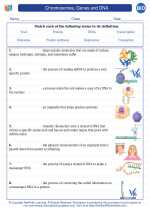Nickel
Nickel is a chemical element with the symbol Ni and atomic number 28. It is a silvery-white lustrous metal with a slight golden tinge. Nickel belongs to the transition metals and is hard and ductile.
Properties of Nickel
- Atomic Symbol: Ni
- Atomic Number: 28
- Atomic Mass: 58.6934 atomic mass units
- Physical State: Solid
- Melting Point: 1455°C
- Boiling Point: 2913°C
- Density: 8.908 g/cm³
Uses of Nickel
Nickel is widely used in various industrial and consumer products, including:
- Manufacturing of stainless steel
- Production of coins
- Alloying with other metals to create alloys with specific properties
- Electroplating to provide a decorative and protective coating
- Manufacture of rechargeable batteries
Biological Role of Nickel
Nickel is an essential trace element for certain organisms, including some bacteria and plants. It is a cofactor for certain enzymes and is involved in nitrogen metabolism in plants. However, excessive exposure to nickel can be toxic to humans and can lead to allergic reactions.
Environmental Impact
Nickel and its compounds can have environmental implications, especially in terms of water and soil contamination. Efforts are made to monitor and regulate the release of nickel-containing substances to minimize environmental impact.
Study Tips
When studying nickel, consider the following tips:
- Learn about the properties and characteristics of nickel, including its physical and chemical properties.
- Understand the industrial uses of nickel and how it is utilized in various applications.
- Explore the biological role of nickel and its significance in living organisms.
- Consider the environmental impact of nickel and the measures taken to mitigate its effects.
[Nickel] Related Worksheets and Study Guides:
.◂Biology Worksheets and Study Guides High School. Chromosomes, Genes and DNA
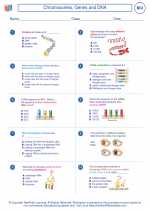
 Worksheet/Answer key
Worksheet/Answer key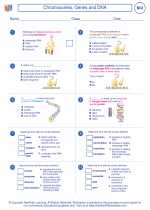
 Worksheet/Answer key
Worksheet/Answer key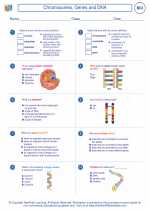
 Vocabulary/Answer key
Vocabulary/Answer key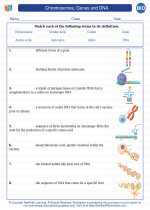
 Vocabulary/Answer key
Vocabulary/Answer key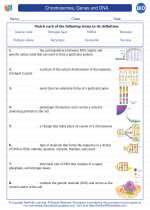
 Vocabulary/Answer key
Vocabulary/Answer key